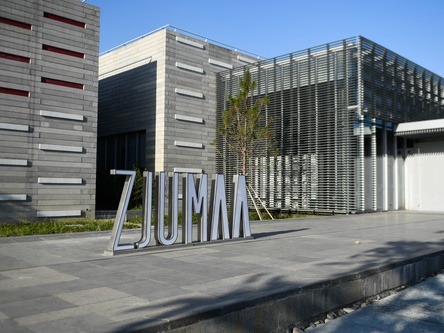HANGZHOU, March 25 (Xinhua) -- East China's Zhejiang University, located in the provincial capital of Hangzhou, launched an online forum on education and scientific cooperation for sustainable development on Wednesday, inviting university presidents across the world.
"With knowledge, technology and responsibility to expand high-quality education, universities have unique roles in promoting sustainable development, which is crucial to a better future for mankind," said Wu Zhaohui, president of Zhejiang University.
Each university, regardless of its global ranking, has its own advantages in boosting environmental-friendly development, Wu said, adding that a platform for the exchange of ideas can create synergy.
The forum attracted university presidents from 13 countries and regions to share their views and experience in imparting knowledge for a sustainable future, advancing scientific collaborations and creating a greener campus.
"Each academic department or school in our campus has at least one faculty member whose scholarship relates to sustainable development, and we have a long history of preparing students to overcome relevant challenges," said Peter Salovey, President of Yale University, at the forum.
University Town and School of Design and Environment are two precincts in the National University of Singapore (NUS) that have been designed, built and rejuvenated sustainably, providing platforms for students to learn about the practice of sustainability and enjoy more vibrant campus life, said Tan Eng Chye, president of NUS.
Speaking at the forum, many university presidents expressed their resolution to support sustainable development and willingness to cooperate.
Comprehensive universities globally have a moral obligation to make profound contributions to progress toward the United Nations' sustainable development goals (SDGs) through research, education and operations, said Stephen Garton, vice-chancellor and principal of the University of Sydney.
Michael Spence, president of the University of College London (UCL), vowed that his institution will continue to lead the academic conversations around the practice, application and methodology of the SDGs, in the knowledge that one university cannot address global problems on its own.
A joint proposal supported by 56 universities from 30 countries and regions was made during the forum, featuring common visions of supporting scientific research on dealing with global challenges and strengthening cross-border cooperation.
Given the increasingly pivotal role of universities in contributing to the building of knowledge-based societies and for the achievement of the SDGs, the international forum came at the right time, said Stefania Giannini, assistant director-general for education at UNESCO.
Universities can act as central hubs to combine strengths, said Wu, adding that Zhejiang University will initiate more cross-disciplinary cooperations contributing to sustainable development in the future. Enditem




 A single purchase
A single purchase









